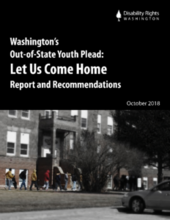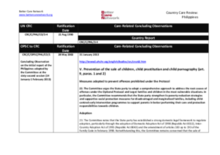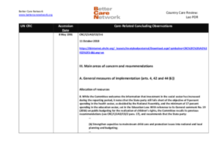Displaying 581 - 590 of 1482
This country care review includes the care-related Concluding Observations adopted by the Committee on the Rights of the Child and the Committee on the Rights of Persons with Disabilities.
The US state of Washington’s foster care system has been sending many young people in need of residential care and treatment to the Clarinda Academy, an institution in Iowa. This is a report by Disability Rights Washington (DRW) to expose the conditions and treatment experienced by Washington foster youth at this institution.
This country care review includes the care related Concluding Observations adopted by the Committee on the Rights of the Child and the Committee on the Rights of Persons with Disabilities.
This article describes and compares the Not in Employment, Education, or Training (NEET) and Education, Employment, and Training (EET) status of care leavers from Girls and Boys Town after 1 and 2 years and in relation to other outcomes.
This study was conducted to identify the quality of life among children deprived of family care in residential institutions in El-Beheira governorate.
This country care review includes the care related Concluding Observations adopted by the Committee on the Rights of the Child as part of its examination of Lao PDR's initial reports, as well as other care-related concluding observations, ratification dates, and links to the Universal Periodic Review
This volume examines typical and atypical development from birth to the preschool years and identifies what works in helping children and families at risk.
The main goal of this article was to explore the correlates of mental health diseases in a sample of 169 children with intellectual disability (6–18 years old) in residential care in Spain compared with a group of 625 children, also in residential care but without disability.
This study examined disruptions in caregiving, as well as the association of these disruptions, with cognitive, behavioral, and social outcomes at age 12 in a sample of 136 Romanian children who were abandoned to institutions as infants and who experienced a range of subsequent types of care.
This study explored whether patterns of catch-up growth affect metabolic and cardiovascular outcomes in previously institutionalized adolescents in Romania.





